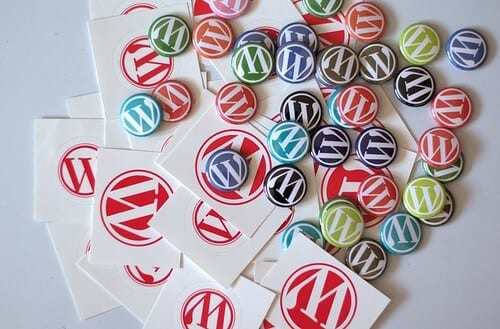WordPress is one of the most popular content management systems (CMS) on the internet, powering an estimated 30% of all websites. As a result, it is a prime target for hackers and cybercriminals who are constantly looking for vulnerabilities to exploit. As a business owner, it’s essential to take the necessary steps to secure your WordPress website against these threats. In this blog post, we will discuss some of the best ways to secure your WordPress business website.
Keep Your WordPress Site Updated
One of the most simple but effective ways to keep your WordPress site secure is to keep it updated. WordPress regularly releases updates to its platform, which includes security patches and bug fixes. By keeping your site updated, you can ensure that any vulnerabilities are quickly addressed. It’s essential to keep your theme and plugins updated as well, as outdated software can also pose a risk to your site’s security.
Use Strong Passwords
Another simple but highly effective way to secure your WordPress site is to use strong passwords. Weak passwords are easy to crack, and this puts your site at risk. Make sure you use a combination of letters, numbers, and symbols, and avoid using common phrases or words. Also, ensure that you change your passwords regularly and avoid using the same password for multiple accounts. Find plugins that enforce strong passwords.
Install Security Plugins
WordPress has a wide range of security plugins that you can install to help protect your site. These plugins can help with tasks such as malware scanning, brute force attack prevention, and firewall protection. Some popular security plugins include Wordfence, Sucuri, and iThemes Security. These plugins can help you identify and fix security vulnerabilities on your site, and some even offer real-time threat detection and mitigation.
Limit Login Attempts
One of the most common ways hackers try to gain access to WordPress sites is through brute force attacks. This involves trying multiple username and password combinations until they find the right one. By limiting the number of login attempts allowed, you can make it much harder for hackers to gain access. You can use a plugin like Login Lockdown to limit login attempts or implement two-factor authentication to add an extra layer of security to your login process. Find a Limit Login Attempts plugin
Use HTTPS
HTTPS is a secure version of HTTP, and it encrypts the data that is transferred between your site and your visitors’ browsers. By using HTTPS, you can help to ensure that any sensitive information, such as login details or credit card information, is kept secure. To use HTTPS, you will need to obtain an SSL certificate and configure your site to use HTTPS. Many web hosts offer free SSL certificates, and some even provide tools to help you configure your site for HTTPS. Find HTTPS plugins.
Disable File Editing
By default, WordPress allows you to edit your site’s files through the dashboard. While this can be convenient, it also means that if a hacker gains access to your dashboard, they can easily edit your files as well. To prevent this, consider disabling file editing. You can do this by adding a line of code to your site’s wp-config.php file or by using a security plugin like iThemes Security.
Backup Your Site
Finally, it is essential to back up your site regularly. This ensures that if your site is hacked or compromised in any way, you can quickly restore it to its previous state. There are many backup plugins available for WordPress, including UpdraftPlus and BackupBuddy. These plugins can help you schedule regular backups of your site’s files and database, and some even offer cloud backup options for added security.
In conclusion, securing your WordPress business website is essential to protect your data, your customers’ data, and your reputation. By following these best practices, you can help to ensure that your site remains secure and protected against cyber threats. Remember to keep your WordPress site and its components updated, use strong passwords, install security plugins, limit login attempts, use HTTPS, disable file editing, and back up your site regularly. By taking these steps, you can help to keep your WordPress business website secure and running smoothly.






